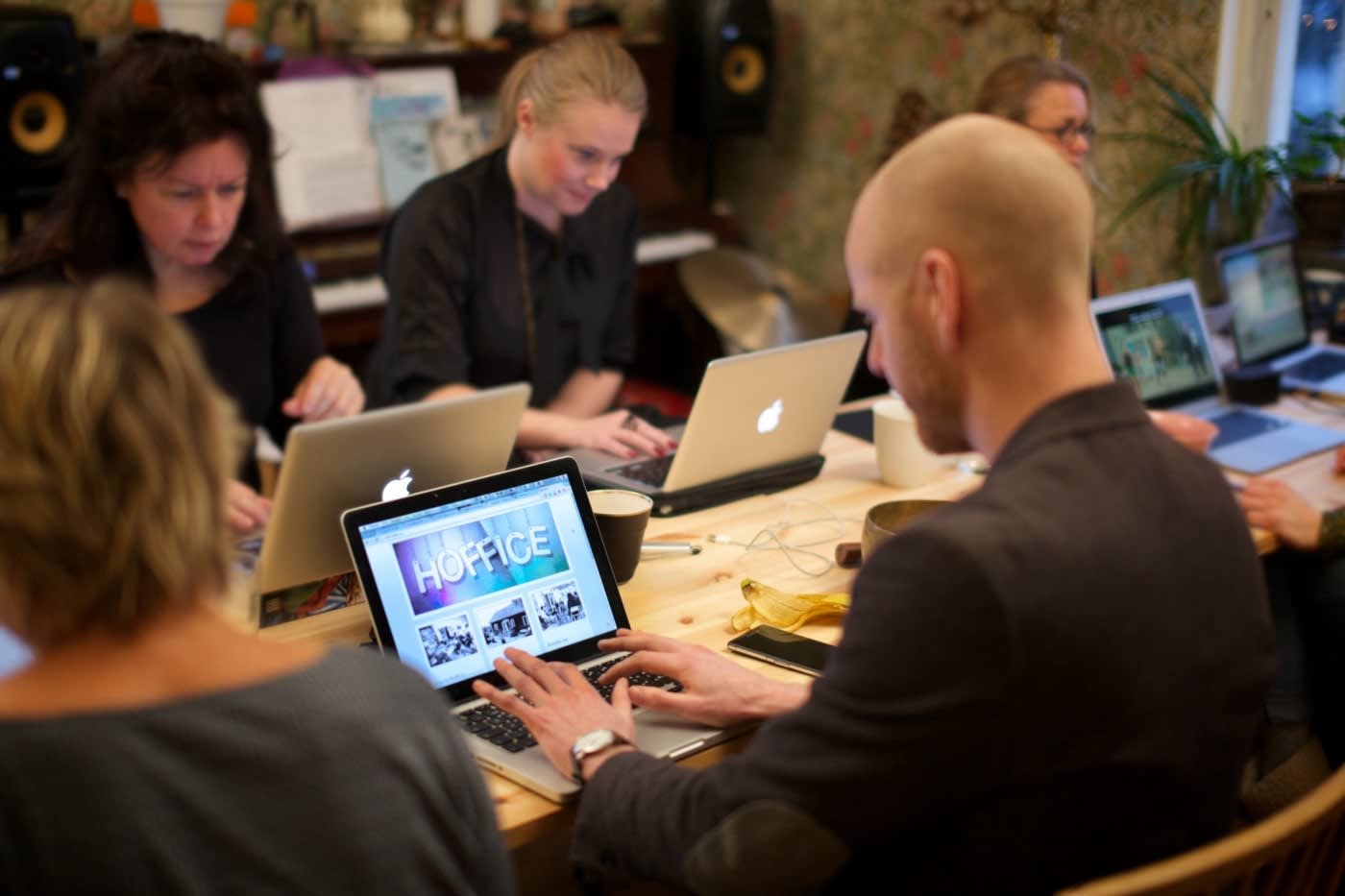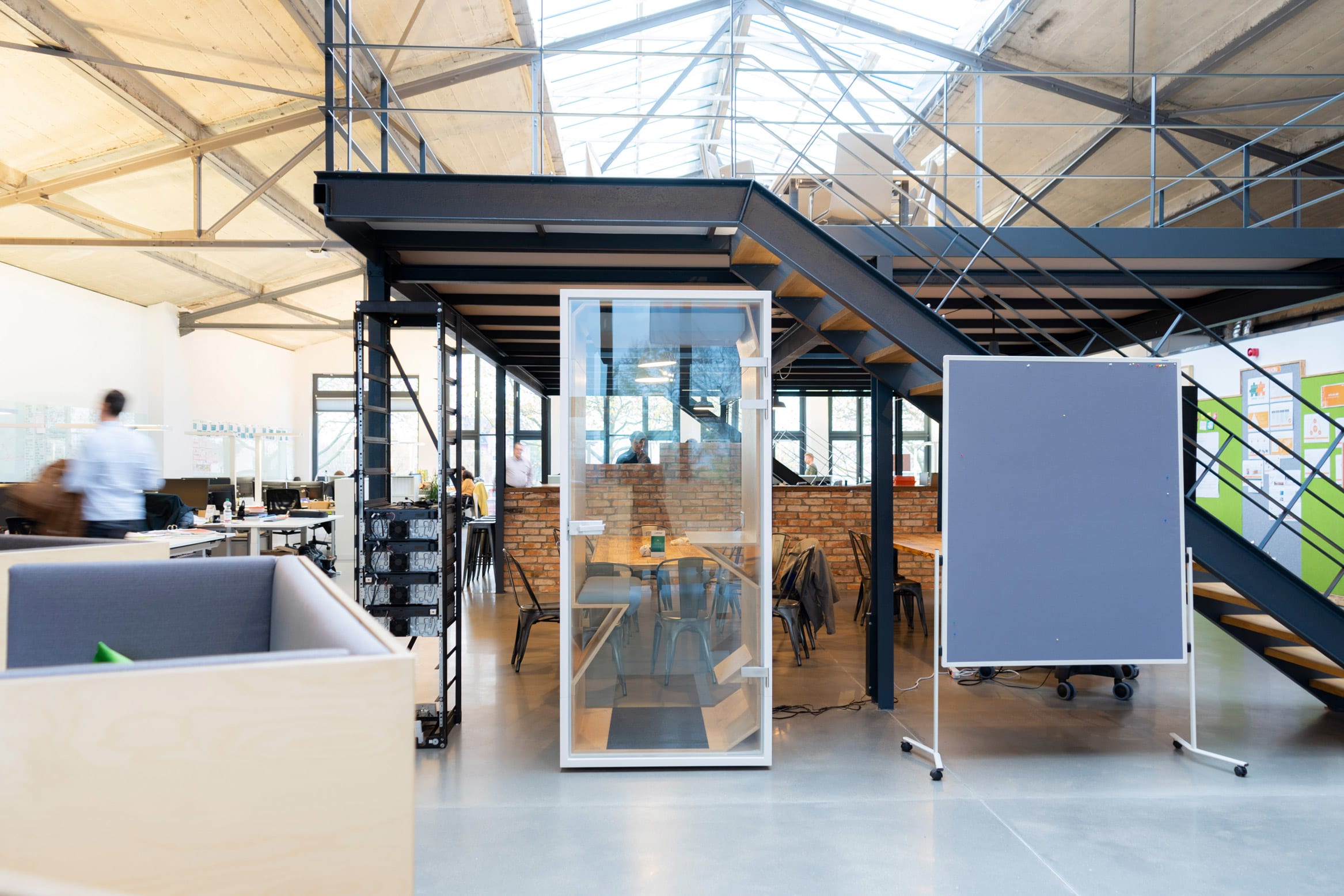The future of the office
A topic that has been discussed and researched for a long time has been brought back into focus by the current coronavirus crisis. As many companies have been forced to send their employees to work from home, employers and employees are once again thinking hard about what the future of the office will look like. Will we all work from home in the future and will this soon make the company office redundant?
We also regularly deal with developments in this area. The future of the office is also heavily dependent on how we work in the future. We have given it some thought and present various future scenarios for work and offices.
How will we work in the future?
Thanks to digitalization, most office work can now be done from anywhere. Whether at home, in a café or on the train - all that is usually needed is a laptop and a stable internet connection. Contrary to lingering doubts, the current phase has shown that employees are indeed productive even when working remotely.
This realization has strengthened the trend towards working from any location and at any time and will continue to grow in the coming years. The freedom to organize working hours, the reduction in commuting, caring for family members - these are all important reasons for many people to be even more flexible in their choice of place and time of work in the future. A legal regulation for working from home is currently being discussed intensively at a political level and therefore seems only a matter of time.
Home office, co-working, courtyard office - alternatives to the company office
However, working from home will not be the only alternative to working in the office. After all, not every employee's home is the perfect place to work. Ergonomic desks and chairs are often lacking and many employees complain about health problems. The fact that there is no clear demarcation between work and private life and that emails are often answered outside of working hours also makes working from home less attractive for everyone.
Instead, working from home will be just one of many alternatives. Co-working spaces are already flexible places for creative professionals and small businesses to work. Co-working networks are already emerging as part of partnerships with local cafés and restaurants. In the long term, employees of medium-sized companies and corporations will also increasingly use co-working spaces as a workplace due to their high level of flexibility.

In addition and similar to co-working spaces, neighborhood offices, i.e. shared offices in the neighborhood, will become established. The providers are private individuals, housing cooperatives and local authorities. The so-called Hoffice, where private individuals make their home available to others as a co-working space, already has many followers in Scandinavia. For employees, these different options result in a variety of workplaces that they can choose flexibly according to their location and schedule.
The company office needs to be rethought!
But what do these developments mean for the company office and its role in everyday working life? Will a company office even be needed in the future if all employees work flexibly while on the move?
The answer is yes! However, its role will increasingly change. Face-to-face appointments, meetings and customer appointments will still not be able to take place completely digitally in the medium term. However, in a hybrid working world in which employees regularly switch between the office and home office, the office will primarily become a meeting place where employees can interact with colleagues and strengthen the sense of togetherness.
Reformation of office space
Due to the changes in working models and requirements for the function of the office, office space needs to be redesigned. This will lead to reduced space requirements for some companies, with the result that the landscape for office properties will also change. In addition, there will be a new, optimal mix of office space (mainly workstations/working facilities) and special areas (mainly communication areas and social areas such as cafeterias or kitchens). The office space will focus on
- Communication
- Concentration
- Creativity
- Collaboration
and therefore need to be rethought. Traditional office planning with the aim of purely optimizing space will no longer suffice. Instead, psychological aspects and movement data must be incorporated into the planning. Which teams work together how and how often. Which office areas are used (intensively) and how?

The result will be smart offices. Intelligent office landscapes combine open and closed areas in a sensible way. Acoustically protected workstations enable concentration and focused work. Room-in-room solutions such as telephone & meeting boxes or silent boxes offer retreat options for teams and individuals.
Workspaces equipped with suitable office furniture promote communication, creativity and collaboration by creating the right environment for the task at hand and providing the appropriate technology.
Workplace gives way to the flex office
At the same time, the era of rigid and fixed workplaces will come to an end. Many tasks are already being performed less and less at the personal workplace. Instead, work is increasingly taking place in meetings, with business partners, on the move or in the home office. The fixed workplace is becoming a flex workplace. Desk sharing is one of the terms used in the New Work concept. People who come to the office do not go to their assigned workstation, but choose the one that best suits their task or mood.
Such approaches have been used in large companies for some time now. And with success: the principle of free choice of seating promotes exchanges between employees, even across departments. Depending on who is being worked with in the current project, people sit together according to the situation.
What does the future hold for the office?
The current coronavirus crisis has shown that it is necessary and possible to rethink traditional ways of working and look at new models. Despite more and more remote working, the office will continue to play an important role in working life in the future. However, its significance and function will change significantly. For companies, the current crisis represents an opportunity to emerge from it optimized and prepare the office for the future.
However, it is difficult to make concrete predictions about developments in the coming years. Especially as there is no single solution that applies to all companies. The requirements vary too much depending on the industry or company size.
For companies today, a multi-year discovery phase therefore begins in which approaches are repeatedly discarded, new ideas are tested and continuous adjustments are made to room planning and office equipment. The challenge is therefore also to be able to react flexibly to such changes at all times.
One approach that companies can use to become (more) agile is the asset light strategy Renting strategically insignificant assets, such as office equipment, is one component of this strategy. As a professional outfitter, we support companies in the planning and implementation of new room concepts and furnish offices with suitable solutions. We have already helped numerous customers on the way to their office of the future.
